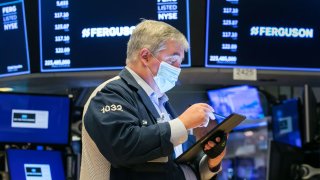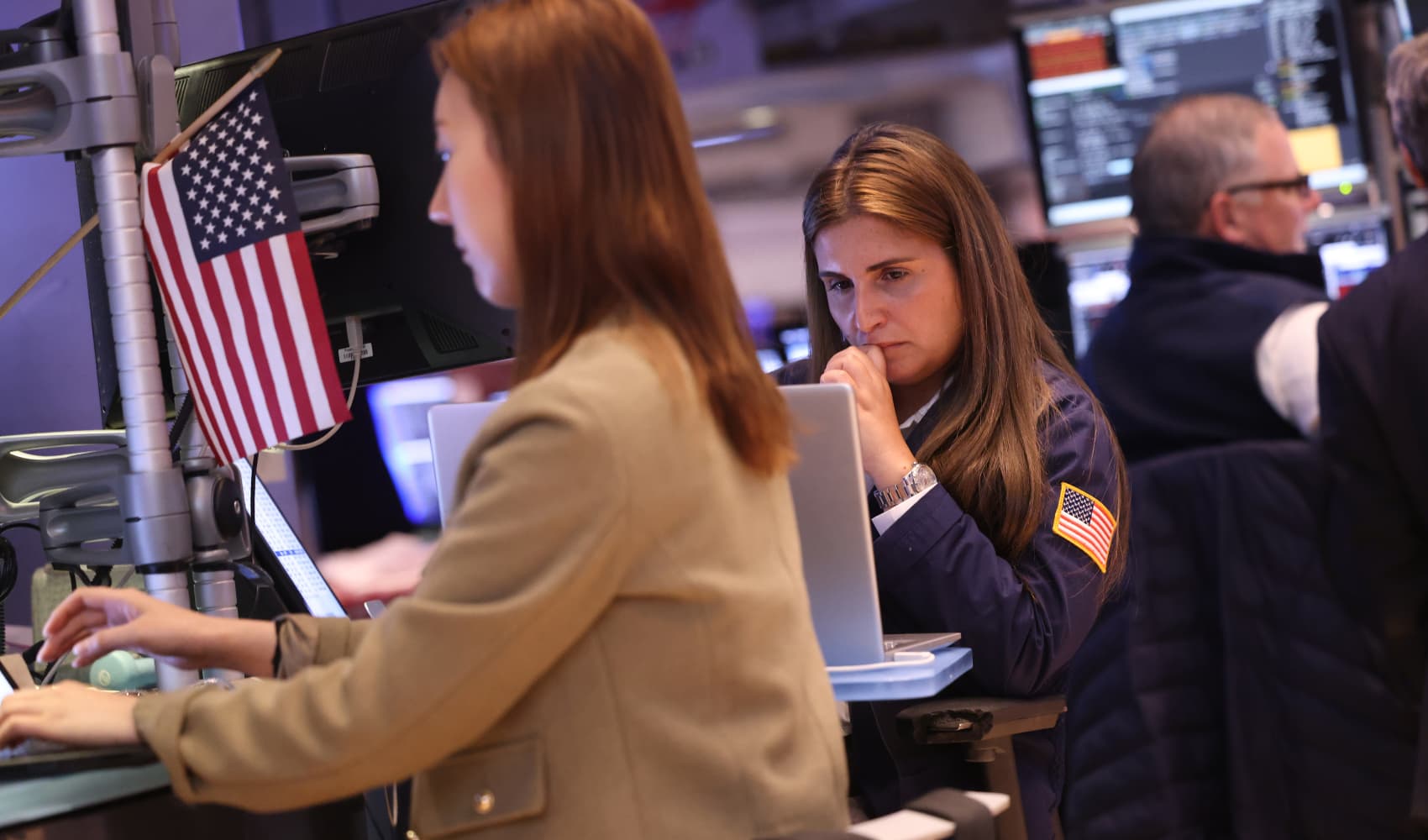
Stocks hit record highs on Wednesday after the Federal Reserve announced it was leaving rates unchanged with projections of no rate rise through at least 2023.
Here's what experts are watching next.
Mona Mahajan, senior U.S. investment strategist at Allianz Global Investors, breaks down the new forecasts.
Get Connecticut local news, weather forecasts and entertainment stories to your inbox. Sign up for NBC Connecticut newsletters.
"It almost feels like a de facto easing. They really took up numbers for GDP growth this year, next year, 6.5% is actually above consensus for GDP growth of 5.6% or so. Unemployment rate down to just 4.5% this year. That's also below what the current consensus is. And so raising those GDP expectations, taking down unemployment expectations, but leaving rates at the zero bound, through 2023, essentially, is in some ways a continuation of this very easy, very accommodative tone. I think the good news for investors was just back in November, the Fed changed its average inflation-targeting regime. And so now, even if their inflation forecast comes to fruition and we get inflation creeping up back above 2%, we know that the Fed's reaction function won't immediately be to think about raising rates. They may have let it run hot as we know for some time and that period of time has been unspecified at this point, but I think the good news for investors is this is a very accommodative Fed still."
Larry Meyer, former Federal Reserve governor, says it's more likely the Fed moves slower than overshooting targets.
"While the economy is better, stronger, there's still a long way to go to get to their goals. That's basically the story to make the no-hike this time consistent with the forecast ... I think there's a little bit more danger that they go too slow. One of the main reasons is that they are constrained from moving away from zero until inflation is 2% for a year and they believe it's going to overshoot. They've never kept the funds rate unchanged under those circumstances. That's remarkable. And that's the new guidance.
Money Report
David Kelly, chief global strategist at JPMorgan Asset Management, lays out when bond purchases could come to an end.
"We very much agree with the economic forecast. We don't think there's much disagreement with them in terms of where the economy is going and it's going to red hot over the course of this year. I do think that raises the question of when will they begin to taper bond purchases, and I think this makes it more likely that they will begin to taper those purchases early in 2022. You have to say that those numbers in the fourth quarter of this year, inflation above 2%, 4.5% unemployment, over 6% GDP growth, you've got to see that as substantial further progress towards their goals."
Sarah Bloom Raskin, former deputy Treasury secretary, discusses Fed Chairman Jerome Powell's press conference.
"You saw Chairman Powell really quite loose. A lot of times really off script, giving very full, off-the-cuff answers. I thought really quite good but defensive about two things in particular. He did not want to engage on the extension of the supplemental leverage ratio question. I mean who knew regulatory issues could be as hot an issue as monetary policy. I thought that was interesting. And those dot plots. Those darn dot plots. I mean really, what he's seeing and what the questioners were noticing is that some of the FOMC members are moving their projections. And that, of course, signals that Chairman Powell has a kind of a corralling issue that could potentially emerge, because those dot plots, while they have all kinds of caveats and all sorts of assumptions embedded in them, they're still out there. And I thought they caused a little bit of a problem for him during this particular press conference."
Paul McCulley, former PIMCO chief economist, gives his take on the announcement.
"We got substance to the Fed's new strategic framework and reaction function, which was implemented last year, but this was the first time for the Fed to put some real meat on the bones with numbers. They upgraded the forecast. At the same time, they said, 'We're not going to be preempting.'"
Josh Brown, CEO and co-founder of Ritholtz Wealth Management, does not see the Fed as the be-all-end-all for markets.
"I don't really worry too much about the Fed. I used to. I've outsourced all of that to Peter Boockvar. I let him worry about the Fed, and then I just read his stuff and then I go do what I was going to do anyway before I read it. ... When you actually look beneath the surface at what's going on in the market, really all we're having in front of us is a continuation of a lot of the biggest, most powerful trends that were in force prior to today's non-event. There was some put activity on the TLT, talked about it earlier this week, that bet seems to have been right so far, still some pressure on long-term bonds, even in a bounce."






